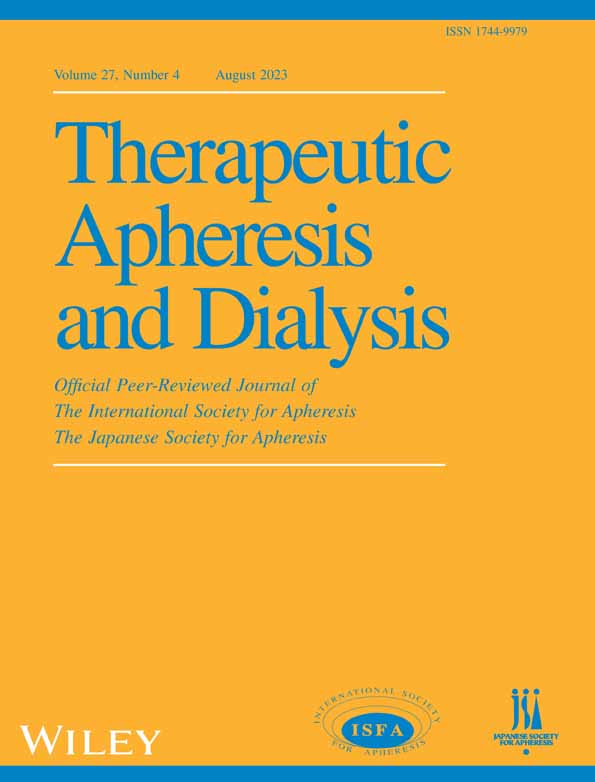The effect of the time from diagnosis to induction therapy on prognosis in patients with acute leukemia undergoing leukapheresis for symptomatic hyperleukocytosis
Abstract
Introduction
Our study investigated leukapheresis's effect on delayed induction therapy outcomes in patients with acute leukemia presenting with symptomatic hyperleukocytosis.
Methods
This retrospective cohort study included 30 adult patients diagnosed with acute leukemia who underwent leukapheresis for leukostasis. The patients were divided into the first 24 h and >24 h groups, according to the time from diagnosis to induction therapy (TDT).
Results
There was no significant difference between the TDT groups regarding complete remission (CR), 4-week mortality, and overall survival (OS) at a median follow-up of 409 days. Tumor lysis syndrome, disseminated intravascular coagulation, and hemoglobin levels were significant in early mortality. In univariate analysis, age, hemoglobin levels, patients' eligibility for intensive chemotherapy, and achieving CR were critical factors for OS.
Conclusion
The study findings suggest that waiting for the clinical and laboratory results may be a safe and reasonable approach before assigning patients the best treatment option with leukapheresis.
CONFLICT OF INTEREST STATEMENT
The authors have no relevant financial or non-financial interests to disclose.
Open Research
DATA AVAILABILITY STATEMENT
Data available on request due to privacy/ethical restrictions.




